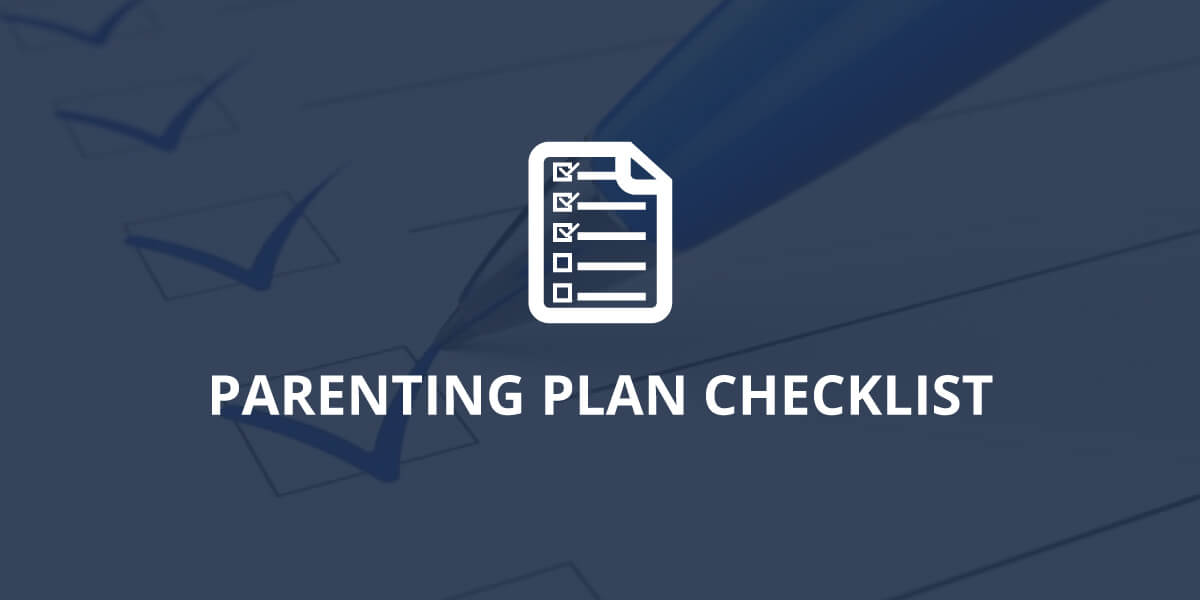Our Parenting Plan Checklist

When you and your children’s other parent are going toshare custody, you need to develop a parenting plan. This is a written document that sets out the practical aspects of co-parenting.
Whether you and the other parent were never married or are going through a divorce, this is a tough process. You both want what is best for your children yet may disagree on how to achieve that. You also may have differing schedules, which makes it difficult to agree on a consistent schedule.
You do not need to go through this co-parenting planning process alone. An experienced child custody lawyer fromInfinity Law Group can help you navigate the development of a comprehensive parenting plan to be approved by the court. As we move through your case, we will make sure to hit all of the topics on this checklist and more.
A Parenting Plan Checklist
As you develop a parenting plan with your children’s other mother or father, you need to take into consideration:
- When the children will live with each parent. If you two share physical custody, when will each of you have the children in your home? Do you divide time each week? Will you have your children every other week?
- How and when parenting exchanges will take place. You should agree ahead of time on who will ensure your children arrive at the other parent’s home. Maybe the parent with the children drops them off at the other parent’s home, or the other parent picks them up. You may choose to meet at a public place or use school pick up for exchanges so that you do not need to interact often or so you can maintain privacy at your respective homes.
- Who provides childcare. Most likely, you and the other parent work. If your children are not in school full time, or one or both of you are still working when the school day ends, you need to agree on child care. This includes whether each of you will rely on other family members, babysitters or nannies, or a childcare facility.
- Who will provide childcare during school holidays, breaks, and sick days. Outside of normal daycare or school hours, you may need additional childcare. You and the other parent need to agree on who will take care of your children if they are home sick from school, during school breaks, and during random school holidays and snow days.
- Important holidays and birthdays. You need to agree ahead of time on who will have the children on which major holidays and how you will handle the children’s birthdays. You may choose to share these days or, especially for holidays, celebrate with your child every other year.
- When each parent may take the children on vacation. If you or the other parent would like to take the children on vacation, discuss what this would look like. Who can take the children on vacation at spring break or during the summer? Can a parent take them out of the country? Do you and the other parent need to check with the other first?
- What information should be shared between the parents. When co-parenting, each of you may learn important information about your children that the other does not know. This could be as simple as a note coming home from school. You two need to decide on what type of information is shared and through which communication method.
- How parents will address disciplinary issues. How will you each discipline your children? Do you want disciplinary measures to be consistent in each home, or are you both OK with using differing methods? Talk about how you want to raise your children and what type of discipline you both agree is appropriate.
- Which type of decisions require both parents’ input. When the children are staying in your home, you will make decisions for them regularly. However, you and the other parent will come up against the decisions that are more important than normal. As best you can outline the types of decisions that require both parents’ input, this may include extracurricular activities, religious activities, medical care, and dating.
Call a Boston Child Custody Lawyer Today
At Infinity Law Group, we understand that creating a plan that is best for you and your former spouse, as well as your child(ren), is of the utmost importance. We want to help you! If you wish to learn more about developing a parenting plan, contact Infinity Law Group by calling (855) 941-0909.
 Infinity Law Group LLC
Infinity Law Group LLC





